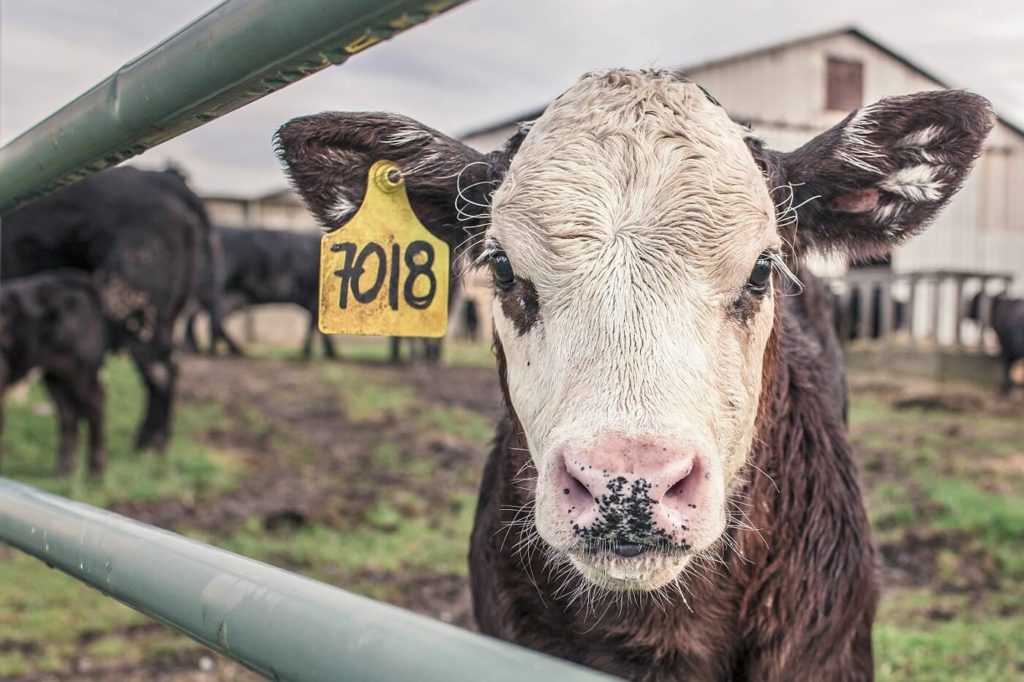Huge corporations use Ag Checkoff Programs to lobby against family farmers. It’s time to change that.
You may not know what a checkoff program is, but chances are, you’ve seen one. Checkoff programs are essentially government-created commodity research and promotion enterprises. At their simplest, they work by collecting funds through taxes on commodity producers — farmers and ranchers — and then funnel those dollars into research and/or advertising for that specific commodity. For example, remember Western icon Sam Elliott lending his drawl to “Beef. It’s what’s for dinner”? Those ads were funded by beef checkoff dollars, the direct result of taxes levied on family ranchers.
Lately, however, checkoff programs have fallen under the control of big agribusiness interests, and oftentimes the billions of dollars paid into checkoff programs by hard-working family farmers and ranchers end up in the pockets of industry lobbyists who push policies that hurt rural communities. This could change in the 2018 Farm Bill with the inclusion of Senate Bill 741, co-sponsored by Senators Mike Lee (R-Utah), Corey Booker (D-New Jersey), and Rand Paul (R-Kentucky). Senate Bill 741 would prohibit lobbying, rein in conflicts of interest, and stop anti-competitive activities that harm other commodities and consumers.
Never miss an opportunity to make the west even better: receive our action alerts.
The Western Organization of Resource Councils has long fought the corporate corruption of checkoff programs. In 1999, WORC passed a resolution, in lieu of corporate control of the ag industry, calling for the US Department of Agriculture to schedule farmer referendum votes on the beef and pork checkoff programs. In 2003, WORC adopted the following beef checkoff legislation principles:
WORC believes the best checkoff livestock promotion program would not require any legislation, but simply involve producers writing a check to the organization of their choice; a new, legislated program is a second-best option. However, if there IS going to be legislation, it should meet the following principles to replace the current beef checkoff with one that is fair, democratic, and constitutional. A checkoff program should:
- Be paid for, administered by, and to benefit all US cattle producers.
- Be a $1 per head producer-directed assessment.
- Be voluntary at the point of sale.
- Direct funds collected from the program to eligible organizations through a fiduciary clearinghouse as directed by individual payers.
- Be administered by a 15-member elected cattlemen’s committee, which will:
- Be elected by producers regionally to serve 3-year terms;
- Select and oversee a firm to manage the collection and distribution of funds.
- And, annually approve a list of eligible Clearinghouse recipient organizations through an open application process.
- And, divide undirected funds among eligible organizations, pro-rated based on their percentage share of directed funds in the most recent clearinghouse accounting period.
The proposed legislation is a step in the right direction. It follows from growing, decades-long concern over checkoff program spending. In November 2017, the U.S. Government Accountability Office called on USDA to increase oversight of all 22 of the checkoff programs. It found that USDA does not routinely review checkoff program subcontracts, impairing its ability to spot when funds are being misused. Further, GAO found that USDA does not ensure that certain documents, such as budget summaries and evaluations of effectiveness, are shared with stakeholders on program websites. According to GAO, USDA agreed with these findings.
A History of Injustice
Below are the 10 most egregious abuses of the checkoff programs, compiled by the Organization for Competitive Markets:
- In 1999, the Office of Inspector General (OIG) found that USDA had “relinquished too much authority to its primary contractor, the National Pork Producers Council (NPPC), and has placed the NPPC in a position to exert undue influence over Board budgets and grant proposals.”
- In 2000, the majority of American hog producers passed a referendum to end the pork checkoff, only to have USDA overturn their decision.
- In 2010, an independent audit of the equivalent of just nine days of beef checkoff program spending found more than $200,000 in improper spending by the primary beef checkoff contractor, the National Cattlemen’s Beef Association (NCBA), including the use of checkoff dollars for lobbying and overseas vacations.
- In 2014, after waiting more than 18 months to receive Freedom of Information Act records from USDA on expenditures of the Beef Checkoff Program, the Organization for Competitive Markets was forced to file a lawsuit to obtain public records relating to Beef Checkoff audit reports. NCBA has entered the case blocking the release of over 12,000 documents. This case has been ongoing for four years.
- In 2015, documents obtained under a Freedom of Information Act request showed that the American Egg Board illegally used checkoff dollars to attempt to halt sales of an egg-free mayonnaise product.
- In 2016, it was discovered that the Oklahoma Beef Council lost 2.6 million checkoff dollars to embezzlement by a staff member who wrote 790 fraudulent checks to herself during a 10-year period.
- In 2017, USDA came under fire for failing for more than four years to publish legally required annual financial reports on the $400 million per year dairy checkoff.
- In 2018, the Ohio Beef Council illegally used government property to promote a fundraiser for a gubernatorial campaign on behalf of the trade and lobbying group, Ohio Cattlemen’s Association. According to the Ohio Cattlemen’s Association’s brochure, the Ohio Beef Council is also actively engaged in soliciting campaign contributions on behalf of the Ohio Cattlemen’s Association’s Political Action Committee (PAC) through the state agency’s email domain.
- In 2018, a federal judge ruled that the USDA unlawfully approved spending $60 million of hog farmers’ checkoff money on a defunct promotional campaign.
- According to the NCBA’s 2015 IRS Form 990, beef checkoff funds make up approximately 73% of the lobbying group’s total annual budget. As much as 72% of the NCBA president’s nearly half a million dollar salary comes from beef checkoff funds. NCBA membership accounts for less than 4% of cattle producers.
Just the tip of the iceberg
While a step in the right direction, checkoff reform is just one of several necessary components of a better Farm Bill that gives family farmers and ranchers, and rural communities a fair deal. In addition to checkoff reform efforts, WORC supports Farm Bill provisions that:
- Invest in local and regional food systems
- Restore fair and competitive markets
- Protect healthy families
- Ensure fair access to credit and crop insurance
- Institute sound supply management policies
- Protect and target conservation funding
- Reinvest in public research for the public good
- And, invest in truly sustainable energy solutions
The Senate Ag Committee scheduled a markup of its proposed 2018 Farm Bill for Wednesday. Sign up for updates and alerts to keep abreast of WORC’s position on that legislation and agriculture and food policy in general.
Read more agriculture and food stories here.
Learn more:
Court sides with the people of North Dakota upholding ban on corporate farming
Four Reasons NAFTA 2.0 is a Bad Deal
Fact-check: Meatpackers are lying to you about Country of Origin Labeling
The Farm Bill Farce: Corporate ag reports huge profits while farmers struggle to feed their families

Help create a healthy and sustainable West. Support WORC today.

